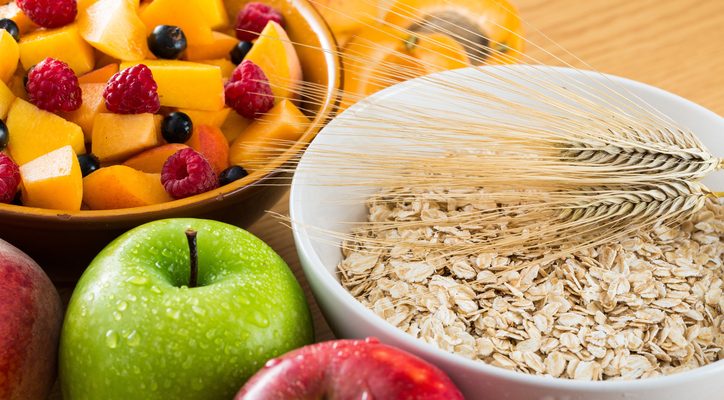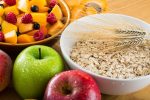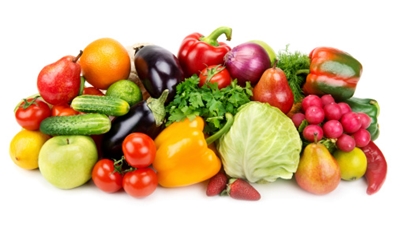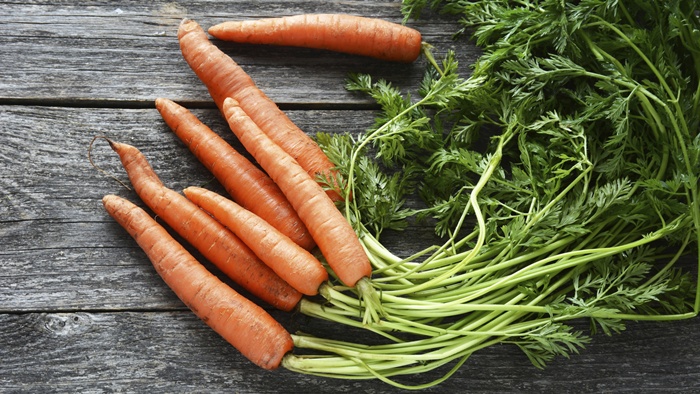
Theoretically, any food you eat should be digested—after all, that would just be your body doing its job. But rarely are things so simple.
Often, the lifestyle you lead and things you eat, not to mention genetics, influence how some foods react in your digestive system. Easy to digest foods can help alleviate the pain and hassle of an upset stomach to regain an optimal quality of life.
The food you eat, along with some other lifestyle measures, can help in the battle against gas, bloating, stomach pain or constipation.
How Certain Foods Are Easy to Digest
Certain foods are not only easy to digest, but they improve your digestive system so indigestion becomes less of a problem over time.
Like most things regarding your health, the effect of a healthy and balanced diet on your digestive system is cumulative. The more whole grains, fruits, vegetables, legumes and probiotics you eat, the better your digestive system will work.
On the other hand, eating processed, fried and sugary foods that are virtually empty from fiber and nutrition can punish your digestive system, making it worse over time and increasing the likelihood of stomach pain, gas, bloating and constipation. These are some of the hardest foods to digest.
Thankfully, foods that are easy to digest typically promote a strong digestive system. These items tend to be rich in fiber, vitamins and minerals, while being unprocessed and very easy to access.
These foods work to improve digestion with their fiber, probiotic and pre-biotic content that promote active “good” gut bacteria responsible for nutrient absorption and waste removal.
Let’s look at oats, for example. When you have a bowl of oatmeal you’re getting a good hit of fiber, which works to draw water and loosen stool, making it easier for waste to make its way through, and out of, your digestive system.
Oats are also a prebiotic, which means it stimulates gut bacteria to get to work and start breaking down nutrients. An active and diverse population of gut bacteria is essential to improved digestion.
List of Easy-to-Digest Foods
Fiber
To give yourself the best chance of limiting digestive troubles, you’ll want to eat at least 30 g of fiber per day. I’ve even seen recommendations to get up to 50 g per day, but it’s best to start with something more attainable. Fiber is the most important part of a diet that promotes good digestion, and you need it to go to the bathroom. If you’ve got enough fiber in your diet, constipation is highly unlikely.
Probiotics
In addition to fiber—which is found in fruits, vegetables, legumes and whole grains—probiotics are another important component to digestion. Probiotics are foods that feature live “good” bacteria to promote gut diversity.
Some easily accessible examples of probiotic-rich foods are kefir, certain yogurts, sauerkraut and kimchi. Unlike fiber, there is no recommended amount of probiotics you should consume every day, but having a glass of kefir or serving of probiotic-rich yogurt (or two) is likely adequate if the rest of your diet is healthy, balanced and high in fruits and vegetables.
Not everyone digests the same foods exactly the same. Whereas I may feel full and bloated after eating brown rice, you might feel fine.
Or perhaps you have a lactose intolerance, and therefore yogurt, which goes down easy for some, might cause you all kinds of problems.
But although individual allergies and sensitivities vary, here is a list of foods that are typically easy to digest— most of which also contribute to improved overall and long-term digestion.
- Whole meal bread
- Brown rice
- Virtually any fruit or vegetable: In some cases, various fruits and vegetables may be less effective for some people. For example, berries, although high in fiber and other nutrients, can create short-term indigestion for some individuals.
- Beans
- Oats
- Probiotic yogurts
- Kefir
- Sauerkraut: Fermented cabbage, and other fermented items, are a good source of probiotics that are not only easy to digest, but improve the population of gut bacteria for future benefit.
- Chicken breast: Though not a source of fiber or probiotics, chicken breast is a lean protein that’s easy to digest. Lean proteins like lean red meat, white fish, turkey breast and chicken are easy on the stomach and a great source of protein, vitamins and minerals. Loading sugary sauces onto these items can remove their digestibility and lead to inflammation, so stick to seasonings instead of sauces. If you’re sensitive to spice, avoid it because it can lead to digestive troubles or stomach aches.
- Salmon
- Bananas
- Eggs: also not a source of fiber or probiotics, so eat alongside some fruit, veggies or whole grains.
- Avocado
Easy-to-Digest Foods for Constipation
While getting 30 g of fiber per day and including probiotics in your diet are the best defenses against constipation, stress; fatigue; vacation; or other external factors can induce the uncomfortable condition.
One of the best acting and easy-to-digest foods for constipation, in my opinion, is the pear. I remember visiting the doctor with digestive issues about eight years ago, and his instructions were
simple: Start eating one or two pears per day and come back to see me in 10 days! So if you need some fast acting relief, these items can help you breakthrough:
- Prunes
- Pears
- Apples
- Broccoli
- Flaxseeds
- Beans
- Figs
- Carrots
- Pineapple and pineapple juice
- Whole grains
Foods That Are Hard to Digest
Foods that contribute to poor overall digestion—like processed foods, fatty foods and sugary foods—are not always hard to digest, however they lead to problems like inflammation, homogenous gut bacteria and constipation.
Some items that are healthy, on the other hand, can create difficulty for your digestive system and lead to short term pain or discomfort. These hard to digest foods include:
1. Some cheeses
This is especially true if you’re lactose intolerant or eat a lot of it. For example, I can eat a slice of pizza without any indigestion, but if I have two or three it becomes rather uncomfortable. Perhaps you can relate!
2. Hot peppers
It’s unfortunate that these can cause an upset stomach and indigestion among some people because hot peppers are extremely healthy. But if you’re sensitive to hot peppers, try to avoid them or at least be ready for what’s coming!
3. Corn
it doesn’t break down in your digestive system, so it may lead to feelings of discomfort and bloating. The same is true for popcorn, which is an extemey healthy and high-fiber snack.
Give yourself the best chance at avoiding indigestion and stomach pain by knowing what causes reactions for you and what doesn’t. It’s also important to remember your overall diet plays a role in digestion, so eating plenty of high-fiber items and including probiotics is a way to reduce the risks of indigestion.
Related:
- Top 20 Antihistamine Foods that Help Fight Inflammation
- Top 10 Health Benefits of Lemon Tea
- Alternatives to BRAT Diet
- What Is Lemongrass? Discover 10 Health Benefits of the Lemon-Scented Herb
Sources:
“Good Foods to Help Your Digestion,” NHS web site, August 21, 2016; http://www.nhs.uk/Livewell/digestive-health/Pages/stomach-friendly-foods.aspx, last accessed January 25, 2017.
“10 Easily digestible foods,” Bembu web site, http://bembu.com/easy-to-digest-foods, last accessed January 25, 2017.
“Constipation Foods: 10 Foods That Will Make You Go” Huffington Post Canada, November 2015; http://www.huffingtonpost.ca/2012/07/04/10-foods-for-constipation_n_1647050.html, last accessed January 25.















